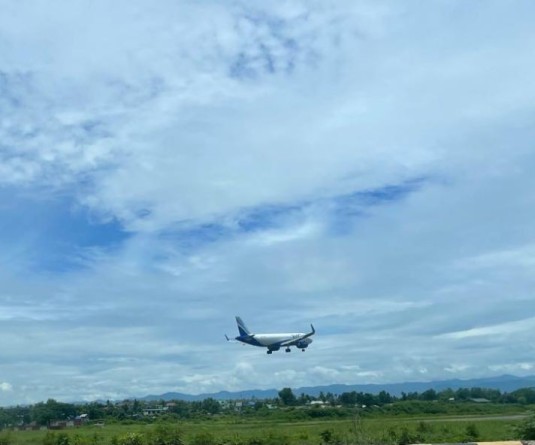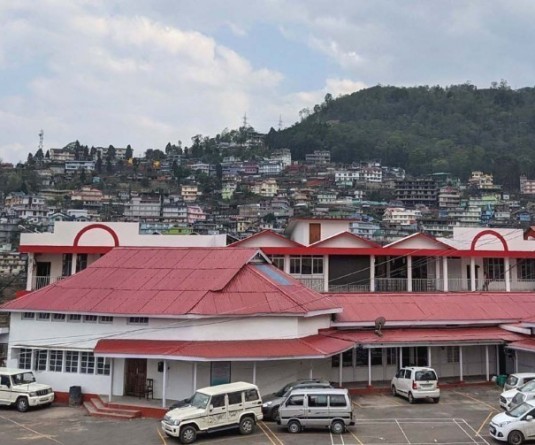Wokha DC along with the participants at the technical workshop on “Marketing Strategies & Business Opportunities for Tea Growers” held in Wokha on September 2.

Morung Express News
Wokha | September 2
The District Administration, Wokha, in collaboration with the Indian Institute of Plantation Management-Bengaluru (IIPMB) and the Tea Board of India, organised a technical workshop on “Marketing Strategies & Business Opportunities for Tea Growers” at the Deputy Commissioner’s conference hall, Wokha on September 2.
The workshop formed part of a three-day capacity-building programme for tea growers of Wokha district from September 1 to 3, focusing on tea cultivation, plantation management, marketing, entrepreneurship development, and strengthening of value chains to create sustainable livelihoods.
In his inaugural address, Wokha DC Vineet Kumar, IAS, encouraged participants to take full advantage of the sessions and apply the learning in their future planning. He underlined the potential of scientific and sustainable plantation practices, organic tea branding and certification, and the establishment of localised processing and marketing linkages. The DC appealed to IIPMB to consider Wokha’s small tea growers as a special institutional case, given their unique organic practices, and stressed the need for quality testing and certification to position Wokha as a recognised tea-growing region.
Faculty members from IIPMB Bengaluru and Jorhat, along with Mariani College, Assam, led the sessions. They observed that while Wokha possesses well-maintained plantations with significant potential, commercial production remains underutilised. Emphasis was laid on market-centric approaches, systematic management, and developing entrepreneurial mindsets. The speakers also highlighted that most plantations in Wokha remain pest- and disease-free, providing a natural advantage for organic farming and branding. As a follow-up, selected progressive growers from the district will undertake an exposure visit to the Livelihood Business Incubation Centre at IIPMB Jorhat, which specialises in agri-entrepreneurship, processing techniques, and business incubation for plantation-based value chains. The programme is expected to equip local growers with hands-on knowledge, new technologies, and institutional linkages for scaling up tea production.
Faculty teams further visited plantations under the Wokha District Small Tea Growers’ Association to interact directly with farmers and identify possibilities for cooperative processing units and cluster-based interventions.
Delivering the vote of thanks, Project Manager (Skill Development), Anuranjan Singh, described the workshop as a first step towards building a resilient and self-reliant tea ecosystem in the district. He urged growers to begin small, make use of government schemes, and leverage institutional expertise to gradually build momentum. Singh also reaffirmed the administration’s commitment to supporting entrepreneurship, certification, and market access in the tea sector.
The initiative, he noted, marks an important step towards promoting Wokha as a distinctive tea destination in Nagaland, with the long-term vision of positioning its produce as a premium organic product backed by institutional support.





